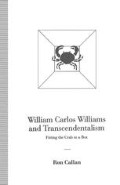Abstract
In a Journal entry for 6 October 1836, a month after Nature was published, Emerson wryly records: ‘Transcendentalism means says our accomplished Mrs B., with a wave of her hand, a little beyond.’1 It is a view shared by Williams when he criticises Emerson for rising superior ‘into a world of thought’ (SE 155). However, this, as indeed Williams recognises, is hardly a full account of Transcendentalism and it is, I will argue, the focus on the world at hand which gives American Transcendentalism its unique identity. The emphasis on the need to express a truthful reconciliation between spirit and matter, Reason and Understanding, motivates this ‘school’ to engage mundane subjects as Emerson would be distracted by ‘puss’ in his crisis essay ‘Experience’ or Thoreau would be fascinated by a piece of rotten wood in The Maine Woods or that a ‘spear of summer grass’ would become what one critic terms a ‘constitutive metaphor’ for Whitman’s epic Leaves of Grass.2
Access this chapter
Tax calculation will be finalised at checkout
Purchases are for personal use only
Preview
Unable to display preview. Download preview PDF.
Notes and References
Edwin Fussell, Lucifer In Harness: American Meter, Metaphor, and Diction (Princeton: Princeton University Press, 1973), p. 80.
Perry Miller and Thomas H. Johnson, eds, The Puritans: A Sourcebook of their Writings, Vol. II (1938; rev. London: Harper Torchbooks-Harper & Row 1963), p. 673.
John Cotton, Gods Promise To His Plantantions (1630), in Colonial American Writing, ed. and introd. Roy Harvey Pearce, 2nd edn (New York: Holt, Rinehart & Winston, 1969), p. 64.
Perry Miller, Errand into the Wilderness (1956; rpt London: Belknap Press of Harvard University Press, 1981), p. 49.
Charles Chauncy, Seasonable Thoughts On the State Of Religion (Boston, 1743), in The Great Awakening: Documents Illustrating the Crisis and Its Consequence, eds Alan Heimert and Perry Miller (New York: Bobbs-Merrill, 1967), p. 297.
William R. Hutchison, The Transcendentalist Ministers: Church Reform in the New England Renaissance (1959, rpt New York: Archon Books, 1972), pp. 18–19.
William Wordsworth, Wordsworth’s Poetical Works, ed. Thomas Hutchinson, rev. Ernest De Selincourt (1904; rev. Oxford: Oxford University Press, 1936), p. 734.
Wallace Stevens, Preface to Collected Poems 1921–1931 by William Carlos Williams (New York: Objectivist Press, 1934)
Samuel Taylor Coleridge, The Collected Works of Samuel Taylor Coleridge: No. 7, Biographia Literaria or Biographical Sketches of My Literary Life and Opinions, 2 vols., eds James Engell and W. Jackson Bate (London: Routledge & Kegan Paul; Princeton, NJ: Princeton University Press, 1983), Vol. II, Chapter 17, p. 55.
David Porter, Emerson and Literary Change (London: Harvard University Press, 1978), pp. 49–50.
Tony Tanner, The Reign of Wonder: Naivety and Reality in American Literature (Cambridge: Cambridge University Press, 1965), p. 38.
Stephen Tapscott, American Beauty: William Carlos Williams and the Modernist Whitman (New York: Columbia University Press, 1984), p. 6.
Carl Rapp, William Carlos Williams and Romantic Idealism (London: for Brown University Press by University Press of New England, 1984), p. 155n.
R. A. Yoder, Emerson and the Orphic Poet in America (London: University of California Press, 1978), p. 108.
B. L. Packer, Emerson’s Fall: A New Interpretation of the Major Essays (New York: Continuum, 1982), p. 162.
Author information
Authors and Affiliations
Copyright information
© 1992 Ron Callan
About this chapter
Cite this chapter
Callan, R. (1992). Emerson: Facing the Ignoble World. In: William Carlos Williams and Transcendentalism. Palgrave Macmillan, London. https://doi.org/10.1007/978-1-349-12116-8_1
Download citation
DOI: https://doi.org/10.1007/978-1-349-12116-8_1
Publisher Name: Palgrave Macmillan, London
Print ISBN: 978-1-349-12118-2
Online ISBN: 978-1-349-12116-8
eBook Packages: Palgrave Literature & Performing Arts CollectionLiterature, Cultural and Media Studies (R0)

